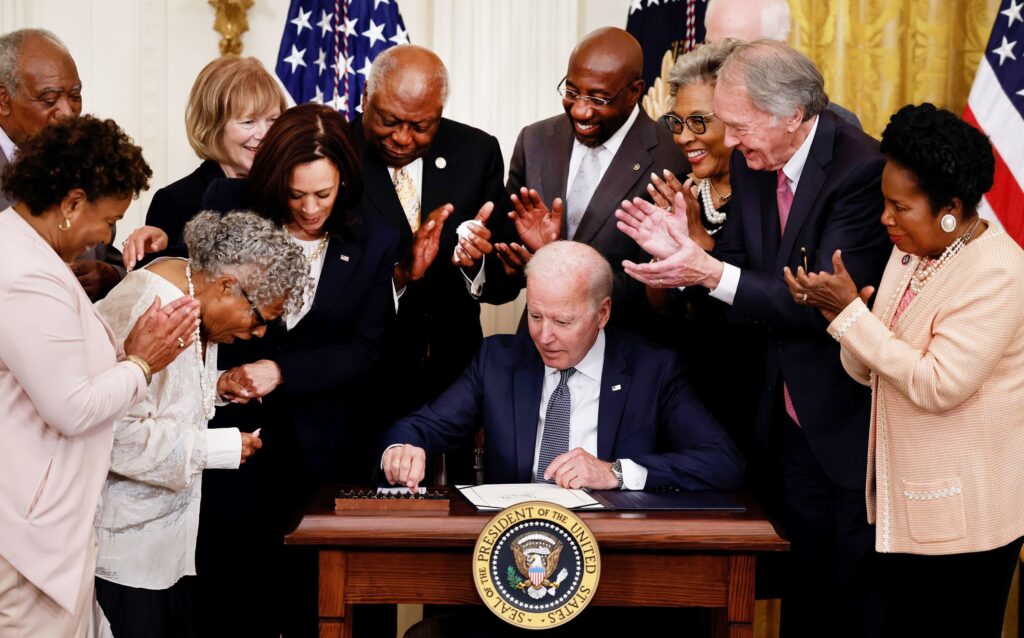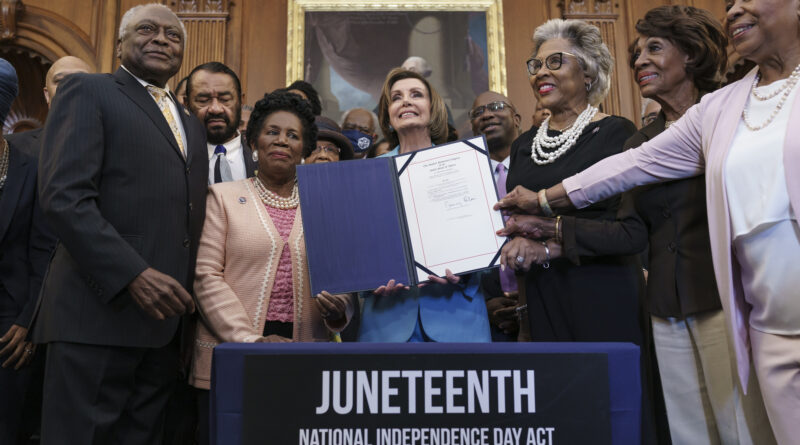Juneteenth commemoration in U.S.!
Juneteenth, a day of emancipation and celebration for African Americans, holds a profound significance that resonates deeply in the hearts of many. This national day of observance, which has spanned over 160 years, has gained renewed importance in recent times as our nation confronts its history of racial injustice and the enduring legacy of slavery.
In 2020, the tragic murder of George Floyd ignited a nationwide movement against police brutality, propelling Juneteenth into the spotlight. Works like “The 1619 Project” further elevated the discourse on slavery and racial inequality, ensuring that these vital conversations remain at the forefront of our national consciousness.
Now, for the second time, Juneteenth will be commemorated as a federally-recognized holiday, granting millions of Americans a day off to reflect on the end of slavery and honor the struggles and triumphs of African Americans throughout history. This momentous step signifies the growing recognition of Juneteenth as America’s Second Independence Day.
To understand Juneteenth, we must go back to June 19, 1865, when Major General Gordon Granger arrived in Galveston Bay, Texas, with Union troops. It was on this day that he proclaimed the freedom of more than 250,000 enslaved Black people in the state, two and a half years after President Abraham Lincoln issued the Emancipation Proclamation. Despite initial resistance from some slave owners, Granger demanded compliance with the proclamation, heralding the dawn of freedom for those held in bondage.

The name “Juneteenth” itself is a simple fusion of “June” and “Nineteenth,” honoring the date of Granger’s proclamation. While its origins lie in Galveston, Juneteenth has since become a celebration of African American culture observed in various parts of the United States.
In 2021, Juneteenth solidified its place as a federal holiday when President Joe Biden signed the Juneteenth National Independence Day Act. This historic moment marked its inclusion among the 11 official federal holidays, granting government and private employees a well-deserved paid day off. Across the country, people will commemorate Juneteenth with events organized by local governments and activists, including public readings of the Emancipation Proclamation.
The significance of Juneteenth extends beyond attending events. It is a time to reflect on the progress made and the work that lies ahead in the pursuit of racial equality. It is an opportunity to support Black-owned businesses and uplift voices that have long been marginalized.
As we honor Juneteenth, let us embrace the emotional weight of this day. Let us remember the struggles endured, the resilience displayed, and the hope that has carried generations forward. Juneteenth serves as a reminder of our collective responsibility to confront the injustices of the past, forge a more inclusive future, and celebrate the rich contributions of African Americans to our nation’s tapestry.
May this Juneteenth be a moment of reflection, unity, and renewed commitment to the ongoing fight for equality and justice for all.
News source : https://www.usatoday.com/

